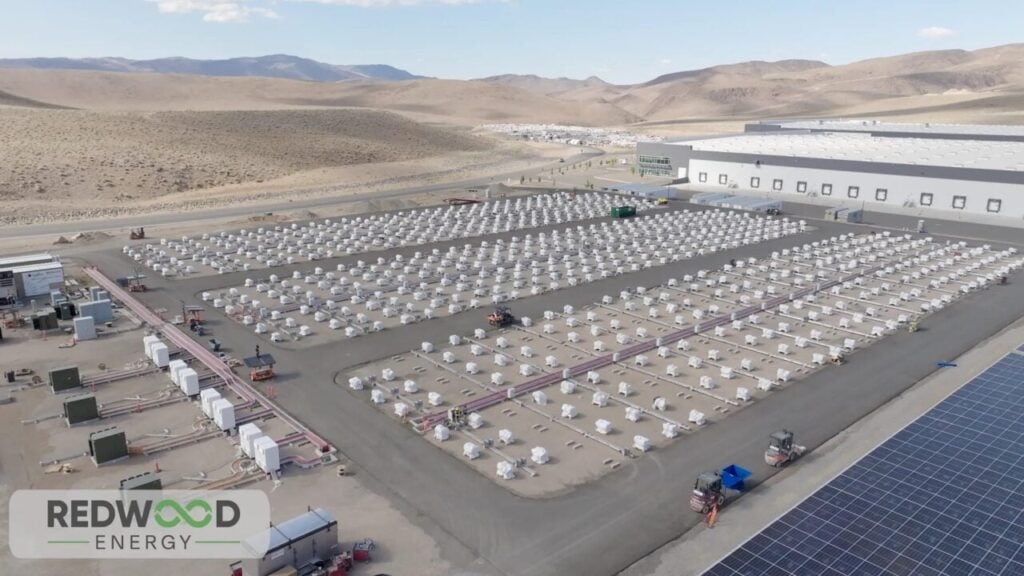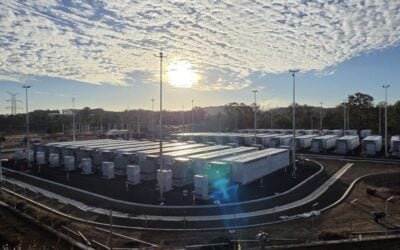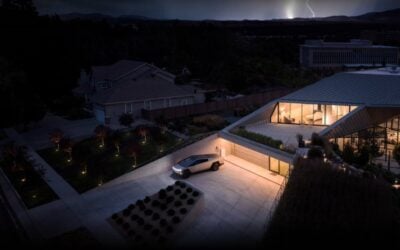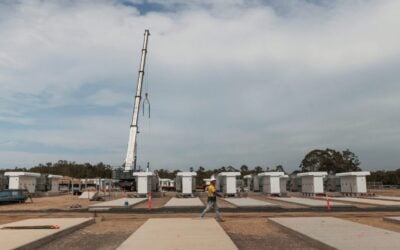
Ex-Tesla CTO’s battery recycling and materials company Redwood Materials has launched a new business unit to repurpose second-life EV batteries for energy storage.
Redwood Materials, launched by former Tesla CTO JB Straubel, through its new offering, Redwood Energy, has entered into a strategic partnership with Crusoe, a vertically-integrated AI infrastructure provider, to develop a microgrid powered by large-scale solar and second-life EV batteries.
Redwood says that it receives over 20GWh of batteries annually, representing about 90% of all lithium-ion batteries and battery materials recycled in North America, equivalent to 250,000 EVs.
Many of these retain over 50% useable capacity and Redwood launched the Redwood Energy division to offer low-cost, large-scale energy storage systems (ESS).
Try Premium for just $1
- Full premium access for the first month at only $1
- Converts to an annual rate after 30 days unless cancelled
- Cancel anytime during the trial period
Premium Benefits
- Expert industry analysis and interviews
- Digital access to PV Tech Power journal
- Exclusive event discounts
Or get the full Premium subscription right away
Or continue reading this article for free
It says it has over a gigawatt-hour of reusable batteries in its deployment pipeline and is already designing projects 100MW+ in size.
The first deployment comes in the form of a 12MW/63MWh capacity microgrid, the largest deployment of second-life batteries globally and largest microgrid in North America, delivered in partnership with Crusoe.
The microgrid powers an AI data centre for Crusoe, which has built data centre campuses including a 1.2GW site in Abilene, Texas (part of the US$500 billion Stargate project) as well as modular data centres for advanced computing in remote oil fields.
Redwood estimates that over five million EVs are active on US roads, representing an estimated 350GWh of energy that will reach end-of-life in the coming years; it states over 100,000 EVs will come off US roads this year alone.
According to the firm, combined with 150GWh entering the commercial fleet annually, EV batteries could supply 50% or more of the entire energy storage market.
When a battery is considered to have depreciated beyond use in an EV, it still has enough life to power other applications. This means several firms have built business models on using repurposed EV batteries for ESS—this requires slower minimum discharge than in an EV.
To read the full version of this story, visit Current.





